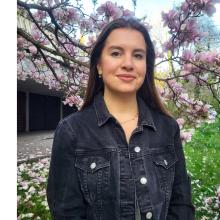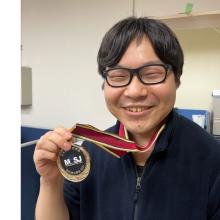Poster presentation awards
The best poster presentations will be selected by jury members of the scientific organising committee and will be awarded with 250 euro prize money each (2 winners), sponsored by TOFWERK.
Upcoming talent oral presentation awards

The winners of the EWLA2024 upcoming talent awards are Kristina Mervič (National Institute of Chemistry Ljubljana, Slovenia) and Dr. Sota Niki (Nagoya University, Japan). They were selected based on their excellent oral talk abstracts and scientific contributions so far. They will be given dedicated oral presentation slots and will be awarded with 250 euro prize money each, sponsored by Journal of Analytical Atomic Spectrometry (JAAS).
Kristina Mervič (National Institute of Chemistry Ljubljana, Slovenia)

Kristina Mervič is a final year PhD student at the National Institute of Chemistry in Slovenia. After completing her MSC degree at Liverpool John Moores University, she worked at Unilever, where she published a patent. She then returned to academia and is currently pursuing a PhD in analytical chemistry, focusing on investigating the fundamentals of LA-ICP-MS, with an emphasis on aerosol formation during ablation and non-matrix-matched calibration approaches for quantitative analysis. Her research has led to the development of a novel calibration method based on volume correction that enables quantitative LA-ICP-MS analysis without matrix-matched standards.
Dr. Sota Niki (Nagoya University, Japan)

Sota Niki is a postdoctoral researcher at Institute for Space-Earth Environmental Research at Nagoya University, currently holding a postdoctoral fellowship from Japan Society for the Promotion of Science (JSPS). He received his Doctor of Science degree from the University of Tokyo in March this year. From the outset of his doctoral research, he has been engaged in geochronology based on laser ablation ICP mass spectrometry (LA-ICP-MS). His studies include the development and applications of dating methods for minerals containing trace abundances of descendent nuclides by utilising ICP-MS with multiple Daly detectors or with collision cell technology. Recently, his research focus has broadened to explore fundamental concepts in analytical chemistry, particularly investigating elemental fractionation during particle generation by femtosecond laser ablation. His upcoming presentation will unveil a novel system for online isotope-ratio analysis of individual particles generated via femtosecond laser ablation, shedding light on the mechanism of elemental fractionation.